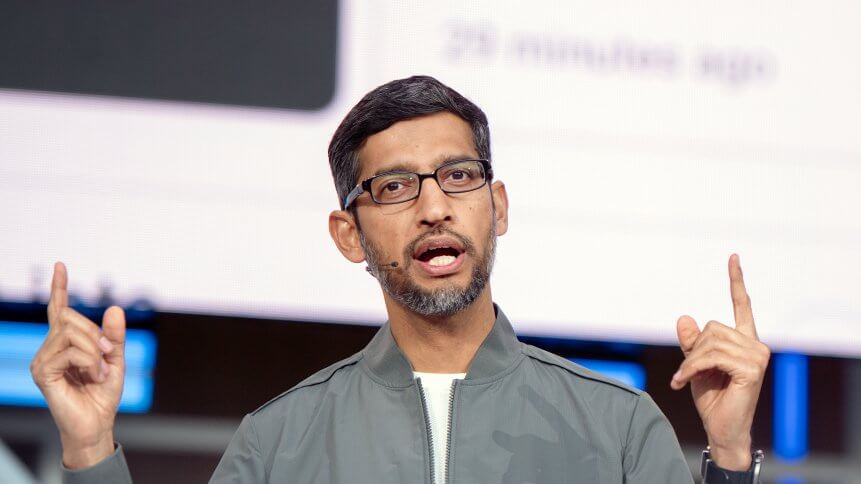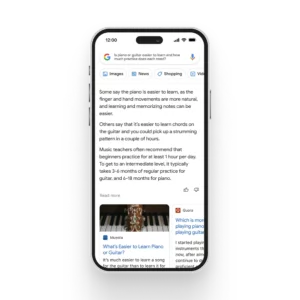The AI race is intensifying as Google unveils Bard, a ChatGPT rival

Shortly after Microsoft hinted that it is planning to launch a version of its own search engine, Bing, that will use ChatGPT to answer users’ search queries, Google unveiled Bard, its in-house AI chatbot. The move has been seen as both an urgency and a timely move, considering that the existence of ChatGPT since November 2022 has threatened Google’s position as a search engine behemoth.
Since December, Google has been operating under “Code Red” with its chief executive officer Sundar Pichai enlisting founders Larry Page and Sergey Brin to advise on speeding AI-powered search products to market, according to The New York Times. In January, the company began a reorganization with mass layoffs, apparently to align with its new priorities. Then Microsoft broke the news of its new multiyear, multibillion-dollar investment with ChatGPT-maker OpenAI.
At that point, the deal marked the third phase of the partnership between the two companies, following Microsoft’s previous investments in 2019 and 2021. Then a week ago, in a blog post, Microsoft Teams vice president Nicole Herskowitz wrote that its new service, Teams Premium, will use the latest technologies in an effort to “make meetings more intelligent, personalized, and protected — whether it’s one-on-one, large meetings, virtual appointments, or webinars.”
Google too last week announced that to compete with ChatGPT, the company plans to make AI-based large language models like LaMDA available “in the coming weeks and months.” Barely a week after that announcement, the company said on Monday morning that it has created an AI chatbot named Bard, which is now available for a handful of trusted testers.
The unveiling by Pichai in a blog posting came shortly before Microsoft’s planned event that is scheduled to take place today with participation from OpenAI CEO Sam Altman. The launch event with OpenAI is where both companies are expected to showcase Micorsoft’s new AI-powered search engine.
Google flaunts Bard
Although Google had re-oriented the company around AI six years ago, it was Microsoft’s move of investing billions in the creators of ChatGPT, OpenAI, that triggered the wave of urgency among Big Tech in the last couple of months. Since ChatGPT became an internet phenomena in December last year, many were of the belief that it could reinvent or even replace the traditional internet search mechanism.

When looking for insights, AI features in Search can distill information to help you see the big picture.
In short, it threatened Google as a search engine titan. The reality however is that Google has been working on the experimental conversational AI service for a while now, powered by its Language Model for Dialogue Applications (LaMDA), unveiled two years ago. “Since then we’ve continued to make investments in AI across the board, and Google AI and DeepMind are advancing the state of the art,” Pichai said in his blog posting yesterday.
Essentially, as Pichai puts it, Bard seeks to combine “the breadth of the world’s knowledge with the power, intelligence and creativity of our large language models.” He noted that Google is opening Bard up to trusted testers ahead of making it more widely available to the public “in the coming weeks.” LaMDA is a smaller version of a powerful AI model which Google first announced in May 2021, and is based on similar technology to ChatGPT.
Google said starting with a lightweight model version of LaMDA allows it to offer the chatbot to more users and gather feedback to help address challenges around the quality and accuracy of the chatbot’s responses. “It draws on information from the web to provide fresh, high-quality responses. Bard can be an outlet for creativity, and a launchpad for curiosity, helping you to explain new discoveries from NASA’s James Webb Space Telescope to a 9-year-old, or learn more about the best strikers in football right now, and then get drills to build your skills,” Pichai explained.
Google before and after Bard
As Pichai puts it, Google has had a long history of using AI to improve Search for billions of people. “BERT, one of our first Transformer models, was revolutionary in understanding the intricacies of human language. Two years ago, we introduced MUM, which is 1,000 times more powerful than BERT and has next-level and multi-lingual understanding of information, and which can pick out key moments in videos and provide critical information, including crisis support, in more languages,” he shared.
Now, Google’s newest AI technologies — like LaMDA, PaLM, Imagen and MusicLM — are building on Bard, creating entirely new ways to engage with information, from language and images to video and audio. Beyond that, Google sees the importance of making it “easy, safe and scalable for others to benefit from these advances by building on top of our best models.”
That said, Google will start onboarding individual developers, creators and enterprises next month so they can try the Generative Language API, initially powered by LaMDA, with a range of models to follow.
“Over time, we intend to create a suite of tools and APIs that will make it easy for others to build more innovative applications with AI. Having the necessary compute power to build reliable and trustworthy AI systems is also crucial to startups, and we are excited to help scale these efforts through our Google Cloud partnerships with Cohere, C3.ai and Anthropic, which was just announced last week,” Pichai noted.










